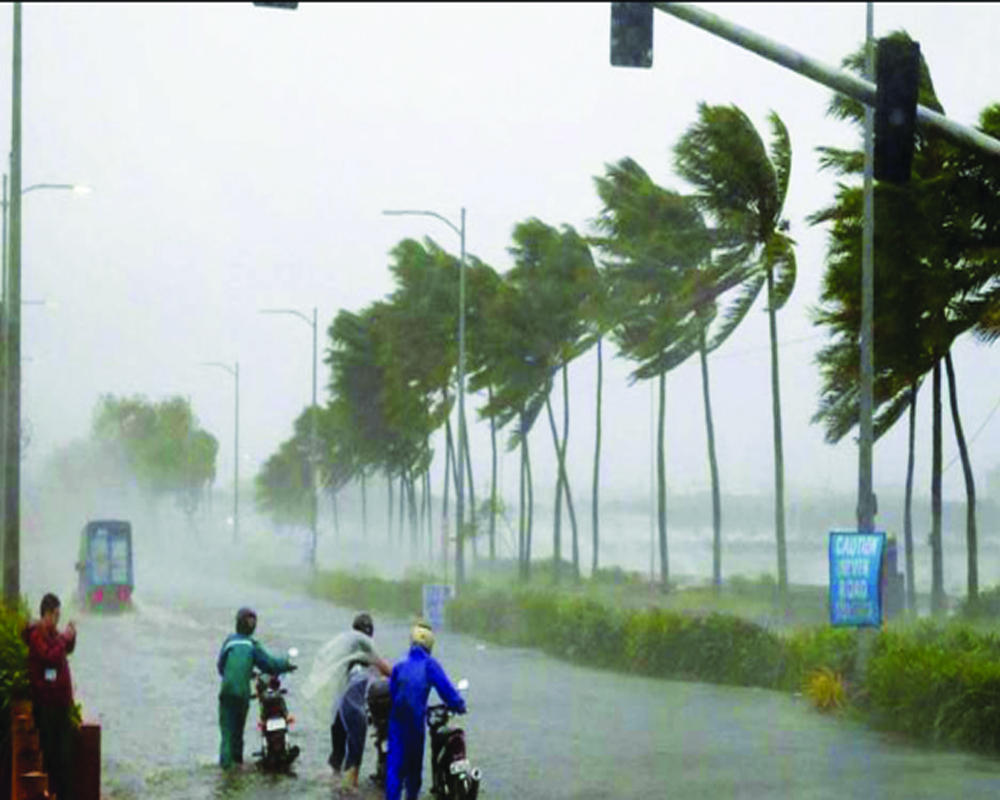The Govt must rein in greenhouse gas emissions, speed of deforestation and change of land use
A study by the University of California-Los Angeles (UCLA) has recently established beyond doubt the complicity of anthropogenic intervention in the environment and its adverse consequences. The research team not only analyzed global climate data from 1982-2015 but also used artificial neural networks, a type of machine learning, to find patterns of extreme precipitation in weather records. The findings are published in the July 2021 edition of Nature Communications. Human activities such as greenhouse gas emissions, change of land use, and other polluting and climate-altering excesses have necessitated in-depth research into the role and extent of human involvement in triggering extreme climate precipitation events. The UCLA researchers were able to take advantage of the multiple lines of evidence supporting the detection of anthropogenic signals in global extreme precipitation. The research study has also been able to take advantage of the selected observational data sets as they provide full global land coverage and data for at least three decades. In 2014, a report by the Inter-governmental Panel on Climate Change (IPCC) also highlighted the human role in warming up of the atmosphere and oceans, changes in the global water cycles, and melting of snow and ice. Global warming due to man-made reasons has also caused the outbreak of many wildfires around the world. The yearly occurrence of the Amazon forest fire is an unfortunate example. In 2020, the Amazon fires consumed 43,000 sq.km of forests which was an increase of 28 per cent over 2019. In 2021, the Amazon forest fire spectre returned to haunt the environment as nearly 1,157 sq.km of verdant forests succumbed to the relentless fires within months. The change of land use by the local population, encroachments by the lumber lobby, and ambivalent authorities who look the other way have resulted in the annual shrinking of the much-fabled Amazon rain forests.
Closer home in India, various parts of the country have been at the receiving end of unpredictable precipitation events that have turned extreme with no warning whatsoever. The rapid change in the weather behaviour has made it difficult for the authorities to anticipate disasters and for the hapless population to be prepared. The year 2020 is mostly known for the havoc created by the Coronavirus pandemic. However, it was also notorious for extreme precipitation-led weather events. For instance, the Amphan cyclone in this period accounted for nearly four million displaced lives and caused 128 deaths. The 2020 monsoon season with its abnormal rainfall and precipitation quotient caused 2000 deaths across the nation and resulted in a loss of $10 billion. Hyderabad served as a stark reminder to the new reality: The city had to endure 30 cm of rainfall in just 24 hours, bringing the civic infrastructure and medical facilities to its knees. There is an urgent need to spread awareness on how environmentally degrading human activities contribute to increasing the unpredictability of the weather, in particular, and climate, in general. The disparity is evident with extreme droughts in one part of the country and heavier than usual rainfall and precipitation in other parts of the nation. As these weather anomalies increase each year, the ability of the government and the people to endure these extreme events is coming down. The government must rein in greenhouse gas emissions, speed of deforestation, and change of land use to curb extreme precipitation events. Since the government efforts will not get instant results, it is critical to start the initiatives as early as possible so that at least the next decade and eventually the next generation can thank us for taking the right measures in the nick of time.
(The writer is an environmental journalist. The views expressed are personal.)


























